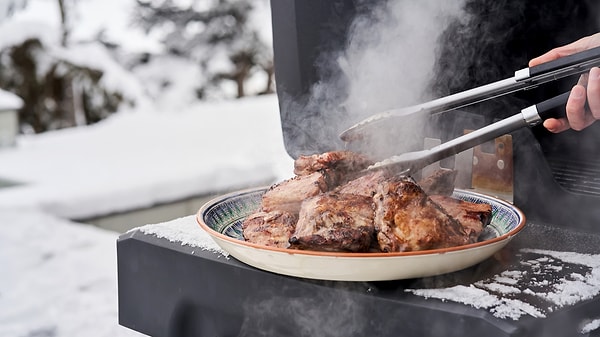What Time You Should Eat Dinner During Winter?
When the clocks fall back and darkness descends even before the end of the workday, the winter season can feel more burdensome for many people. The days are getting shorter, the nights are stretching out, and, inevitably, dinner times tend to shift to later hours. However, this shift can conflict with the body's natural rhythm, which operates entirely based on the cycle of light and darkness.
Therefore, the timing of dinner during the winter months plays a far more crucial role than you might think...
The body's biological clock slows down in sync with daylight.

The human body operates on a 24-hour internal clock known as the circadian rhythm. This clock governs sleep, digestion, hormone release, and metabolism. As daylight begins to wane, the body starts to signal a slowdown. Research reveals that the efficiency of metabolism decreases after darkness falls, making it harder to burn off consumed food.
A study found that healthy individuals who ate at 10 pm experienced up to a 20% increase in blood sugar and burned 10% less fat.
Eating late at night not only disrupts your sleep but also impacts your mood.

Exposure to sunlight can be significantly reduced during the winter months, which may lead to a decrease in serotonin levels. This decline in serotonin can pave the way for mood swings and potentially trigger seasonal depression. Moreover, the habit of continuous snacking in the evening or consuming heavy meals late at night can amplify these effects.
Furthermore, when digestion, hormone release, and the transition to sleep all occur simultaneously, the body cannot fully rest. Having dinner too close to bedtime can not only lead to digestive issues but also result in fragmented sleep.
It might be sensible to have your dinner a bit earlier during the winter months.

Experts recommend that dinner should ideally be eaten between 5:30 and 7:00 pm, or at least 3 hours before bedtime. This allows the body to digest food more comfortably, balances the metabolism, and facilitates a healthier transition to sleep.
Another benefit of eating earlier is the more efficient use of calories consumed during the day. Consuming the majority of calories during breakfast and lunch provides more energy during daytime hours and helps reduce the load in the evening.
Of course, this doesn't apply to everyone in the same way. For someone who exercises at night, an athlete who trains late, or a shift worker, eating later may be a necessity. Instead of strict rules, personal lifestyle and needs should be taken into account.
Keşfet ile ziyaret ettiğin tüm kategorileri tek akışta gör!

Send Comment